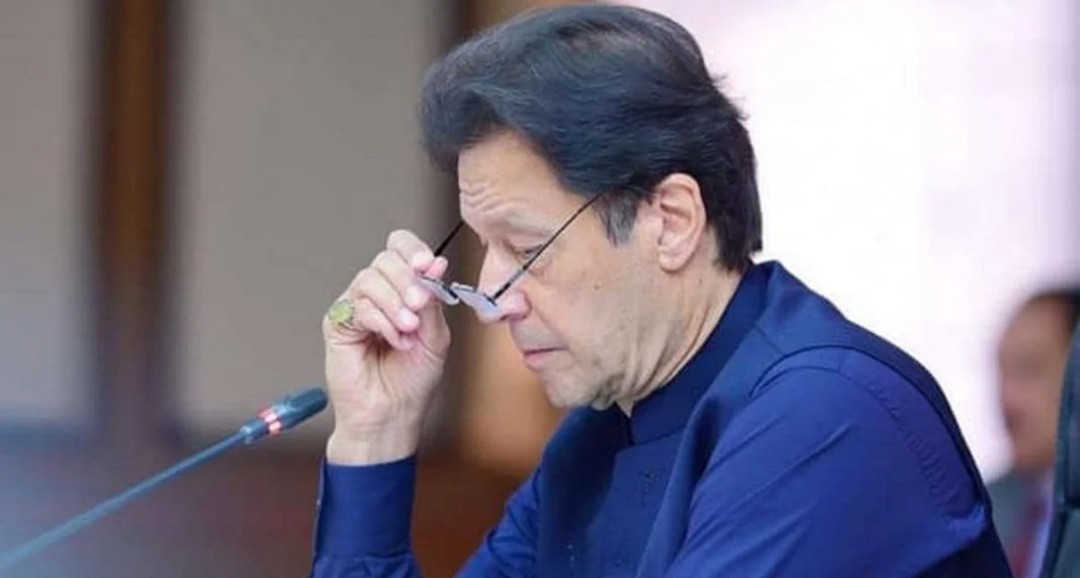Fearing backlash, Prime Minister Imran Khan’s government has not been able to ban people praying in mosques, leading to increased risk of coronavirus spread.
Here’s an anecdote that will explain to the world how Pakistanis are fighting the coronavirus pandemic. On Tuesday, I met a coronavirus-enlightened Uber driver in Lahore. He was wearing a face mask, regularly using hand sanitiser, encouraging his passengers to also do the same. He made rather compelling points on why people should stay home and how social distancing is the key to not catching the virus. At the end of the ride, he asked me which is the closest mosque where he could offer his Friday prayers?
Social distancing in Pakistan is good but when it comes to coronavirus jo Allah ki marzi.
Pakistan waiting for Godot
Like the rest of the world, coronavirus outbreak is a real crisis for Pakistan. Yet our current state is like that of Vladimir and Estragon from Samuel Beckett’s tragicomedy Waiting For Godot. We are waiting for the arrival of someone named Godot who might never arrive, or guess what, he might not even exist. But we are waiting for you Godot to help us.
As we wait for Godot, an unending and rather useless debate on lockdown and curfew continues in Pakistan. What is a lockdown and what is a curfew? Can a poor country like Pakistan afford a curfew? But with hundreds and thousands of lives at stake, can the government afford inaction? One set of governments, Sindh, Balochistan, and Gilgit-Baltistan follow a strict lockdown. While Punjab and Khyber Pakhtunkhwa along with Islamabad are following a token lockdown.
In the middle of this chaos, there is no respite for Pakistan from the spread of Coronavirus. More than 1,000 people have now tested Covid-19 positive and the suspected cases now stand at 7,736. The country has also reported eight deaths.
Pakistan never stops praying
The closure of markets, shopping malls, restaurants and public transport is one step to break the chain of the virus but the continuing Jummah congregational prayers in mosques doesn’t help the cause. The churches and temples in Punjab and Sindh were voluntarily closed by the Hindu and Christian community leaders after an increase in Covid-19 cases. The government, fearing backlash, has not been able to ban people praying in mosques.
Pakistan never stops praying
The annual Tablighi Jamaat gathering brought 250,000 people from across 90 countries in Raiwind, a Lahore suburb, continued for a few days before it was called off. The result was that two men from Gaza were infected with coronavirus when they returned from Pakistan.
Twelve other participants of this Jamaat, from suburbs of Islamabad, have been found to be infected. Four others were found positive in Sindh. One Kyrgyzstan preacher of the Jammat was diagnosed in an Islamabad mosque, his 13 companions were quarantined and the mosque was locked down and disinfected. However, none of this has stopped the Tablighis from gathering, in Mardan, Khyber Pakhtunkhwa, where hundreds of participants defied the law and continued to preach and pray.
One of the prominent leaders of the Tablighi Jamaat, Maulana Tariq Jameel, a close ally of Pakistan Prime Minister Imran Khan, could have been instrumental in stopping the main ijitima in Raiwind. After all, he is used to encouraging people to not shake hands and saying emotional prayers for PM Khan on national television. But sadly, a decree from the Maulana to influence his followers wasn’t something that government thought of.
The doubts that Pakistan’s first coronavirus victim, from Mardan may have exposed thousands of people to the disease is now becoming a reality. As many as 39 people who were in touch with the 50-year-old Saadat Khan have now tested positive. He had returned from a pilgrimage to Saudi Arabia and was welcomed by 2,000 people in his village, ten days later he tested positive and died. His relatives say that he was sick when he arrived but was not screened at the airport. Failure to screen people at the airports has been the biggest blunder of this government.
(This story has not been edited by Kashmir Today staff and is published from a syndicated feed.)

